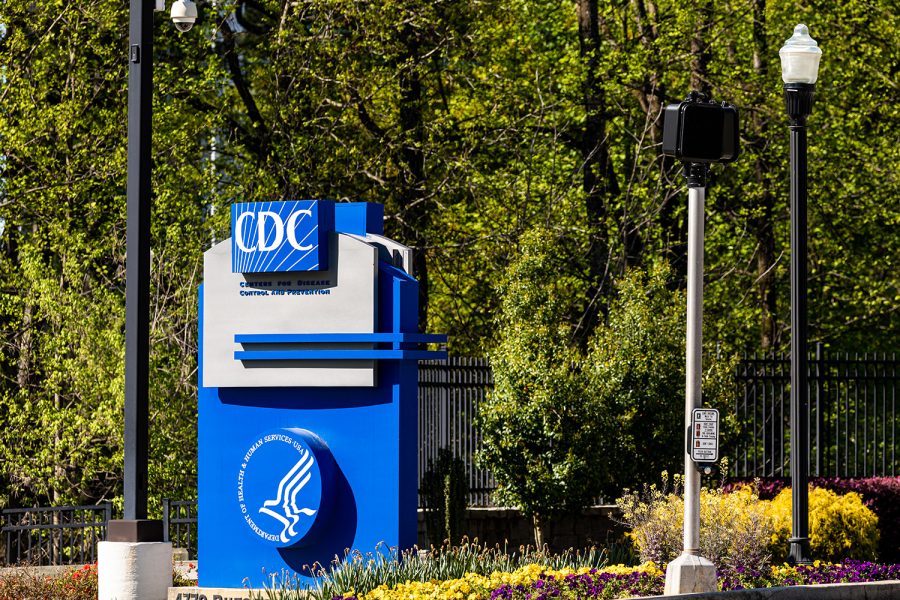Opinion | How 20th century philosophy explains modern public health reactions
How an eccentric 20th century French philosopher is influencing pandemic politics.
A sign at the Centers for Disease Control and Prevention headquarters in Atlanta, GA.
January 26, 2022
The everlasting nature of the pandemic has shown that Americans on the left and right are becoming disaffected with the Centers for Disease Control and Prevention. Michel Foucault’s theory of biopower can explain why this is, as it provides a prism into how activists, scholars, and commentators on both sides are critiquing the U.S.’ premier public health institution.
Foucault, perhaps the most accessible of the 20th century poststructuralists, was fascinated by the structures of institutional power. To examine and critique these institutions, he introduced the concept of biopower, a theory meant to illuminate how public health and research institutions allow the state to regulate and control the bodies of the general populace.
Foucault’s central thesis of biopower explains that the development of modern medicine and the actions of public health institutions cannot be discussed without addressing how they have been used to maintain the grip of the status quo. His theories made him one of the most important philosophers of the political left as he and his disciples used biopower to scrutinize institutions that purported capitalism.
But Foucault was a heterodox thinker and biopower was reflective of that. For that reason, it is no surprise that Foucault’s ideas have found a home on the political right.
Prominent right-wingers — to the detriment of society — have argued that the mask and vaccine mandates perpetuated by the CDC are not going to end the pandemic. These guidelines, they say, are meant to control the actions of individuals and prescribe a dominant view in how to deal with COVID-19.
This Foucauldian line of thinking has emerged on the right largely due to the belief that right-wingers do not have a say in how institutions are run. Therefore, like Foucault before them, they view these institutions as controlling and totalitarian.
On the left, some progressives have also launched polemics inspired by biopower to scrutinize the CDC.
Biopower traces its intellectual roots to Foucault’s theory of knowledge. To Foucault, there is no such thing as an objective truth. Rather, it is a relative concept that changes over time based on the dominant perceptions of elite institutions.
Elaborating on this proposition, Foucault introduced the notion of power-knowledge, the idea that biased institutions discover and create knowledge in an attempt to exert power over a population.
This relationship creates a “regime of truth” in which a cycle forms where institutions create knowledge. Knowledge leads to the discovery of the truth, and the truth gives institutions credibility, and as a result, power.
For progressives, Foucauldian analysis and biopower’s emphasis on power-knowledge has returned to prominence as the omicron variant continues to spread across the country.
After the CDC changed its guidelines and reduced the quarantine time from ten days to five days for vaccinated individuals, many progressives cried foul.
Left-leaning commentators began to fire off tweet after tweet about how the decision to shorten the time of quarantine was not motivated by some objective truth. Instead, they contended that the CDC was motivated to preserve the workflows and supply chains that kept the country moving.
Foucault’s conceptualization of biopower matters in a COVID-19 world because of how it has indirectly influenced the attitudes of ideologues across the political spectrum. Ultimately, the best way to understand the current trends of American pandemic politics is to realize that the domineering shadow of Foucault is looming over it.
Columns reflect the opinions of the authors and are not necessarily those of the Editorial Board, The Daily Iowan, or other organizations in which the author may be involved.



